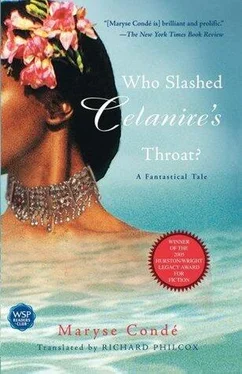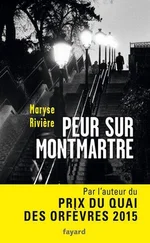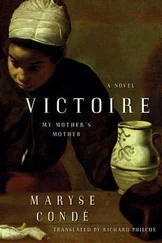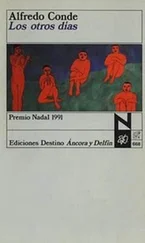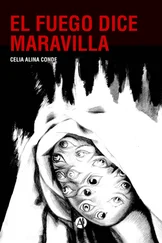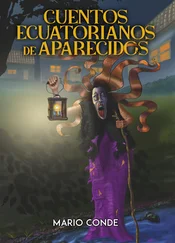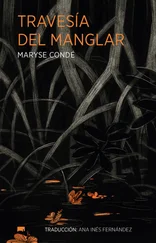Maryse Conde - Who Slashed Celanire's Throat? - A Fantastical Tale
Здесь есть возможность читать онлайн «Maryse Conde - Who Slashed Celanire's Throat? - A Fantastical Tale» весь текст электронной книги совершенно бесплатно (целиком полную версию без сокращений). В некоторых случаях можно слушать аудио, скачать через торрент в формате fb2 и присутствует краткое содержание. Год выпуска: 2004, Издательство: Atria Books, Жанр: Современная проза, на английском языке. Описание произведения, (предисловие) а так же отзывы посетителей доступны на портале библиотеки ЛибКат.
- Название:Who Slashed Celanire's Throat?: A Fantastical Tale
- Автор:
- Издательство:Atria Books
- Жанр:
- Год:2004
- ISBN:нет данных
- Рейтинг книги:5 / 5. Голосов: 1
-
Избранное:Добавить в избранное
- Отзывы:
-
Ваша оценка:
- 100
- 1
- 2
- 3
- 4
- 5
Who Slashed Celanire's Throat?: A Fantastical Tale: краткое содержание, описание и аннотация
Предлагаем к чтению аннотацию, описание, краткое содержание или предисловие (зависит от того, что написал сам автор книги «Who Slashed Celanire's Throat?: A Fantastical Tale»). Если вы не нашли необходимую информацию о книге — напишите в комментариях, мы постараемся отыскать её.
With her characteristic blend of magical realism and fantasy, and inspired by a true story, Maryse Conde hauntingly imagines Celanire in an unforgettable novel — a most dazzling addition to the deeply prolific and widely celebrated author's brilliant body of work.
Who Slashed Celanire's Throat?: A Fantastical Tale — читать онлайн бесплатно полную книгу (весь текст) целиком
Ниже представлен текст книги, разбитый по страницам. Система сохранения места последней прочитанной страницы, позволяет с удобством читать онлайн бесплатно книгу «Who Slashed Celanire's Throat?: A Fantastical Tale», без необходимости каждый раз заново искать на чём Вы остановились. Поставьте закладку, и сможете в любой момент перейти на страницу, на которой закончили чтение.
Интервал:
Закладка:
Ludivine, who considered Thomas to be a spineless individual, despised him for being so accommodating.
Peru: 1910
1
Sometimes Yang Ting thought of Guadeloupe as a woman he had loved but had given him nothing in return. He compared her to Paruera, the place where he lived, to Arequipa, the nearby town, and thought her fairer than anything around him. Neither the deep valley of the river Chili, nor the sparkling cone of the Misti volcano, nor the surrounding rim of snow-capped mountains, in his eyes could match the sweltering heat of Grande-Terre, the sugarcane plantations, the raging rivers, the banana groves, and the life-giving rain hammering on the zinc roofs at night. Ah! If only it were more tolerant, more open to others, that island would be a Garden of Eden! On the days he went into town, he didn’t look twice at the seventeenth-century cathedral, the University of San Augustin, the Monastery of Santa Catalina, and all the Inca ruins that were the pride of Arequipa. The entire journey, in fact, had been based on a misunderstanding. After the death of Pisket, Kung Fui had remained stricken by grief. He had adored his twin sister, and she felt exactly the same way about him. Now that she was gone, life had lost its meaning, and nothing mattered anymore. Ever since the aborted sacrifice, Yang Ting had only one thing in mind — put as many miles as possible between himself and Grande-Anse. Nothing now was to prevent the crafty little devils in the police, headed by Dieudonné Pylône, from snooping around the Blanc Galop and discovering the contract entered into with Madeska. While Pisket was alive, any escape had been impossible. She had been in no condition to leave Grande-Anse to begin a new life elsewhere! Once she was dead and buried, everything had changed. Taking advantage of Kung Fui’s pitiful state, he had decided to take control. He had been beguiled by a certain Aloysius, a braggart of a Frenchman, who worked out of La Pointe and offered contracts for Panama or land in Peru in the Colca Valley. Aloysius strongly advised him to go to Peru because of its large Chinese population. And, moreover, according to him, the Colca Valley was an extraordinary place. Cotton grew like a weed and you only had to bend over, pick it, and bag it to become rich.
But all that had been a scam. Nobody grew cotton any longer in this region of Peru. Finally liberated from slavery, the blacks had deserted the fields as they had everywhere else and were determined to have a good time in town. At Paruera, nature had reclaimed its empire, and all that the two companions had acquired with their inheritance was a hacienda in ruins under a roof of missing Spanish tiles standing desolate on barren terrain, spiked here and there with silk cotton and rubber trees. Furthermore, the nearest Chinese lived at least four hundred miles away. Kung Fui had very quickly sunk deeper into despair. At first, when he was not weeping for his beloved Pisket, he managed to put all his energy into clumsily wielding a pair of pruning shears and a machete alongside Yang Ting. After a few months, however, he no longer ventured out of doors. Soon he no longer left his room, no longer got out of bed, and remained addicted to his opium pipe. Left to his own devices, Yang Ting remembered the region of Port Louis where he had grown up. Refusing to give in, he set out to grow sugarcane instead of cotton. But he never managed to achieve his aim. On the haciendas of Peru, as on the plantations of Guadeloupe, the Chinese were feared and hated. The Indians didn’t want him as boss. They wanted a white boss, a white with sangre azul who spoke Spanish. He was nothing on this earth. With the help of some day laborers hired for the job, Yang Ting was reduced to growing cassava, corn, a little rice from the Andes, and raising sheep and fowl that he sold in the market at Arequipa, squatting among the Indians, looking like one of them under his dirty poncho. On weekdays Artemisa, the mulatto woman, cooked for him, patched up his clothes, and occasionally warmed his bed. As long as he had been in good health, life had been bearable. But age plus the icy winds blowing down from the mountains began to wreak havoc and misery on his body. Finally he sold the hacienda for next to nothing. Then he piled all his belongings as well as what remained of Kung Fui into a cart and left for Lima.
Whereas at first the colonizers were only interested in gold and precious metals from the Andes, their designs gradually shifted to the coast, once a barren strip of land squeezed between sea and mountains. Lima embodied the heart of this transformation. In some ways the capital was a welcome relief for Yang Ting. In Paruera his few contacts had been with the Indians, who seemed to be in perpetual mourning, whereas here the noisy crowds of blacks, Chinese, and mixed-bloods reminded him of his hometown in Guadeloupe. There wasn’t a single white family’s house where people of color didn’t rule as cooks, launderers, and gardeners. Huddled around the Plaza de Armas were the blacksmiths’ workshops owned by the mulattos whose reputation ran the whole length of the coast, while the streets echoed with the cries of the aguadores, the water carriers, straight from the land of Africa. In the evening around the glow of oil lamps black women sold tamales, anticuchos, and a host of spicy foods of a dubious nature. But on the whole the city disappointed him. As a result of numerous earthquakes, there were few reminders of a time when it was once called the Ciudad de los Reyes. He found himself in a small town shivering and muffled up in every season in layers of fog. An icy drizzle constantly seeped in from the ocean, soaking the cobblestones, the hordes of stray dogs, and the baroque facades of the few colonial dwellings. Two steps from the Puente de Piedra, in a blind alley of the mestizo neighborhood they called a callejón, he bought a modest little shack with no windows and one door for an opening. It was built of clay and straw and covered with a traditional tin roof. He also purchased two dozen donkeys for transporting lime and bricks to building sites, and hired by the month two gangly arrieros who drove them along, whip in hand, cigar in mouth. He had lost his delusions of grandeur. What mattered was survival, and this trade, however wretched it seemed, was a lucrative one. Nevertheless, he felt even lonelier than before and at a total loose end. Gone was the time when he was up before dawn, laboring with his day workers, plowing, sowing, harvesting, as well as taking care of the animals. In Lima, while Kung Fui was killing himself with opium, he had all the time in the world to kill. In his idleness he developed a liking for bullfights. Every Saturday he went to cheer the fledgling black capeadores and fervently applaud the exploits of the black toreador, Rafaël Martinez. He also regularly attended cockfights and concerts. Several times a week he used to go as far as the ports of Chorillos and El Callao to gaze at that lifeless gray expanse that had the nerve to call itself a sea. Behind his back, beyond that mass of black mountains, lay another sea, this one warm and welcoming, whose spray had solidified to give birth to his native land. Above all he got into the habit of spending hours and hours in the taverns, drinking chicha . His favorite was La Wiracocha, because of the singers who came in at midnight and captured the desperation of his heart with their gravelly voices. It was constantly filled with blacks and Chinese, driven half insane by alcohol and nostalgia for the lost paradise of their childhood homelands, those wicked stepmothers who had sent their children into slavery. Yang Ting, however, did not like talking about his early days. In Guadeloupe people had always treated him as an outcast from an orphanage and had never accepted the fact that his color made him just as much a Guadeloupean as the blackest of them. He spoke Kréyol, believed in people in league with the devil, and danced the gwo-ka . So where was the problem? In their opinion, Guadeloupeans could only be of African descent. He had been designated Chinese and as a result excluded once and for all! Leaving him behind like a bundle of dirty clothes, his papa and maman had vanished God knows where. He owed his life to the Christian charity of Madame Charmène Elysée. Madame Charmène Elysée was a vivacious mulatto woman who was not satisfied with taking care of her husband and twelve children. With the considerable fortune her white Creole papa had left her, she had opened an orphanage, which she poetically called the Drop of Milk. There she took in the countless fatherless and motherless infants picked up on the steps of churches, in streams, and at crossroads, yelling their hunger. It was among the litter of starved, abandoned, and wild little things who crowded into the refuge that he had got to know the twins Kung Fui and Pisket, as well as their little sister Soumathi. Helpers at the Drop of Milk were volunteers, well-to-do matrons, women friends devoted to Madame Charmène Elysée. Although they were quick to hand out punishment, they were also kindhearted and proved to be acceptable stepmothers. Among their protégés, however, they had singled out Kung Fui and Pisket as their whipping boys, a couple of depraved, dirty little vermin. Hadn’t they caught them at such a tender age doing filthy things in bed together! They preferred, by far, Soumathi, gentle and obedient, who had been quietly baptized Antonine, or Tonine. Although there was some truth in what they said about Pisket, who was a disagreeable, taciturn, and selfish child, giving off a smell to upset the boldest of noses, Kung Fui, on the other hand, was a most attractive young boy, full of brazen and comical ideas. He had quickly realized that sugarcane had been the black man’s burden and downfall, and he had no intention ending up the same way. So at the age of fifteen he left Port-Louis and tried a number of trades at La Pointe. Housepainter, laundryman, bricklayer, hawker, powder monkey, carnival moko zombie, and kitchen boy. Each time people made it clear they didn’t like his looks. As a result he went underground. He formed a gang with the ironical name of the Yellow Hand, which stopped at nothing in the way of robberies and even murder. It specialized in burning plantations. The blacks had sworn to bring the remaining white plantation owners to their knees and made lucrative deals with those who gave them a helping hand. Their method had been perfected down to the last detail. They waited for a moonless night. At eleven in the evening, when the countryside was fast asleep, they would invade the cane fields, pile heaps of straw in a number of different places, and set light to them. The flames would leap up in every corner, and bundles of sparks would explode in the darkness. Soon an orangey wall rose up to the sky, and no sight was more sublime. Obviously, the police thought otherwise, and Kung Fui as well as Ying Tang spent a good deal of their time in jail. Finally they decided to make themselves scarce and went into hiding at Grande-Anse. There, Pisket, who had no other talent, found work in a bordello. After three months of hanging around half-dressed girls and their body odors, Yang Ting had had enough and went back to La Pointe.
Читать дальшеИнтервал:
Закладка:
Похожие книги на «Who Slashed Celanire's Throat?: A Fantastical Tale»
Представляем Вашему вниманию похожие книги на «Who Slashed Celanire's Throat?: A Fantastical Tale» списком для выбора. Мы отобрали схожую по названию и смыслу литературу в надежде предоставить читателям больше вариантов отыскать новые, интересные, ещё непрочитанные произведения.
Обсуждение, отзывы о книге «Who Slashed Celanire's Throat?: A Fantastical Tale» и просто собственные мнения читателей. Оставьте ваши комментарии, напишите, что Вы думаете о произведении, его смысле или главных героях. Укажите что конкретно понравилось, а что нет, и почему Вы так считаете.
